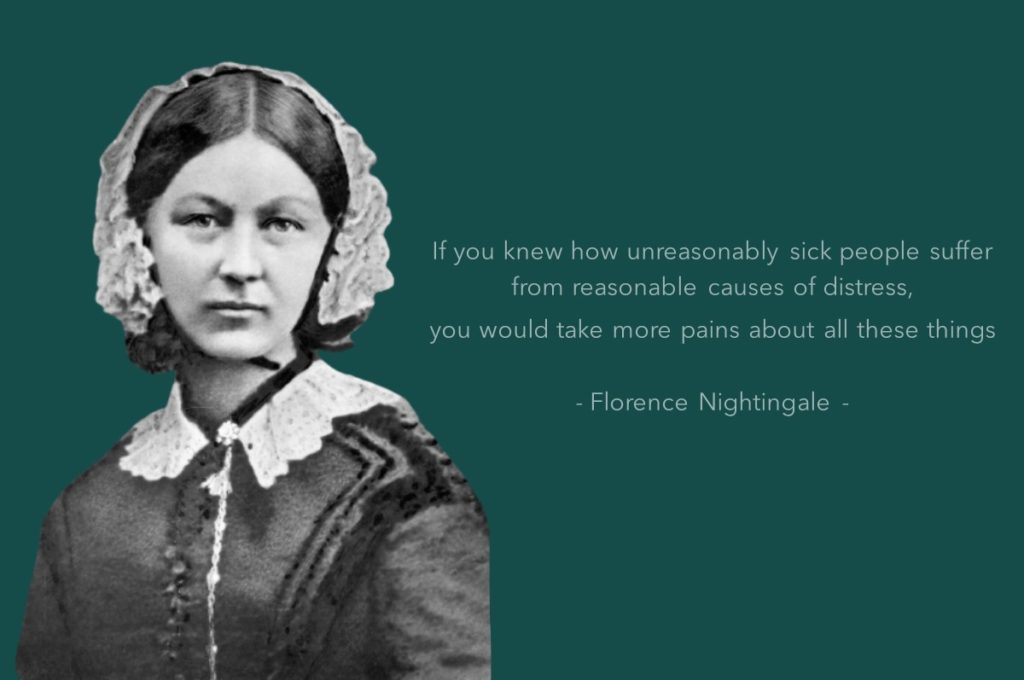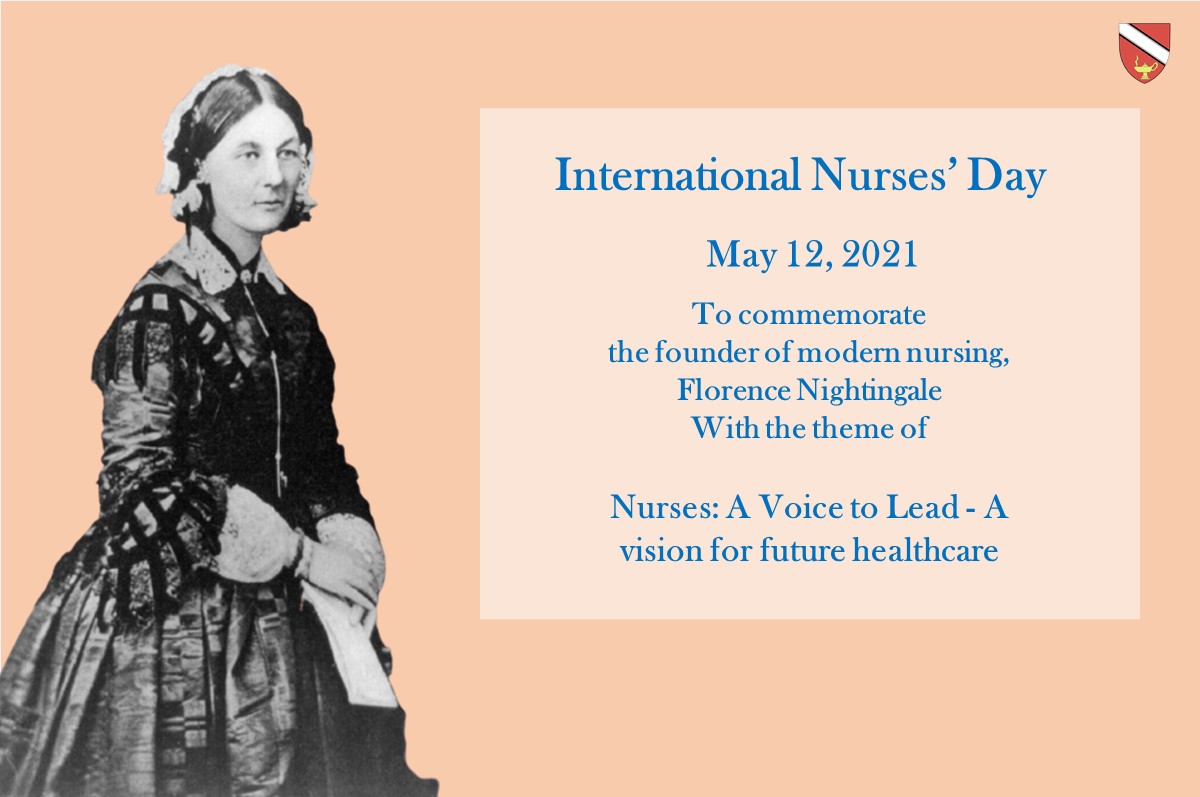International Nurses Day
International Nurses Day (IND) is celebrated around the world every 12 May, the anniversary of Florence Nightingale's birth. Florence Nightingale was born in a British family on May 12, 1820, in Florence, Italy. Her wealthy family belong to elite social circles but Florence herself disinterested in social life. Florence appreciated to help ill and poor people in the village since she was young. When she was 16 years old, she knew her need was to be a nurse. But her family did not agree with her decision and expected her to marry a man. With a strong heart to be a nurse, Florence refused to marriage and enrolled as a nursing student at the Lutheran Hospital of Pastor Fliedner in Kaiserwerth, German, in 1844.
In 1850, Florence returned to London to continue her career as a great performance nurse. So, she was promoted to superintendent after a year of her work. She faced with a cholera outbreak and unsanitary condition which leaded to infection and diseases. She started to improve hygiene and it was work.
In 1853, there was a Crimean war, many British soldier injured and was admitted at hospital in the Crimea which lacked of medical attention, sanitary, and human caring. Nightingale received a letter from secretary of war in 1854, asking her to help and take care of soldiers. Nightingale accepted his asking, prepared nurse team and went to Crimea a few days later. In Crimea, she found many soldiers dying from infection disease like Typhoid and Cholera than injuries. So, Nightingale started improve sanitary conditions the hospital, created “invalid kitchen”, laundry, instituted the classroom and library for patient, and clean environment. Based on her observations in the Crimea, Nightingale wrote Notes on Matters Affecting the Health, Efficiency and Hospital Administration of the British Army, an 830-page report analyzing her experience and proposing reforms for other military hospitals operating under poor conditions. Nightingale remained at Scutari for a year and a half. She left in the summer of 1856, once the Crimean conflict was resolved, and returned to her childhood home at Lea Hurst. To her surprise she was met with a hero’s welcome, which the humble nurse did her best to avoid. The Queen rewarded Nightingale’s work by presenting her with an engraved brooch that came to be known as the “Nightingale Jewel” and by granting her a prize of $250,000 from the British government (Onion, A., Sullivan, M., and Mullen, M., 2020).
After Crimea war, Nightingale dedicated her life for nursing. She funded the establishment of St. Thomas’ Hospital, and within it, the Nightingale Training School for Nurses. Nightingale became a figure of public admiration. In 1910, Nightingale fell ill and died unexpectedly at her home in London (Onion, A., Sullivan, M., and Mullen, M., 2020).

International Council of Nurses (ICN) commemorates this important day each year by choosing a theme and producing International Nurses Day resources and evidence. The theme for the 2021 resource is Nurses: A Voice to Lead - A vision for future healthcare. (International Council of Nurses, 2021)
Now, Thailand faces with the worst COVID – 19 situations, shortage of nurses, stress, and burnout in the nursing profession. We would like to share with you, how do you imagine nursing profession in the future and how the profession will transform in the next stage of healthcare?.
References:
International Council of Nurses. (2021). International Nurses Day. https://www.icn.ch/what-we-do/campaigns/international-nurses-day
Onion, A., Sullivan, M., and Mullen, M. (2020). Florence Nightingale. https://www.history.com/topics/womens-history/florence-nightingale-1


